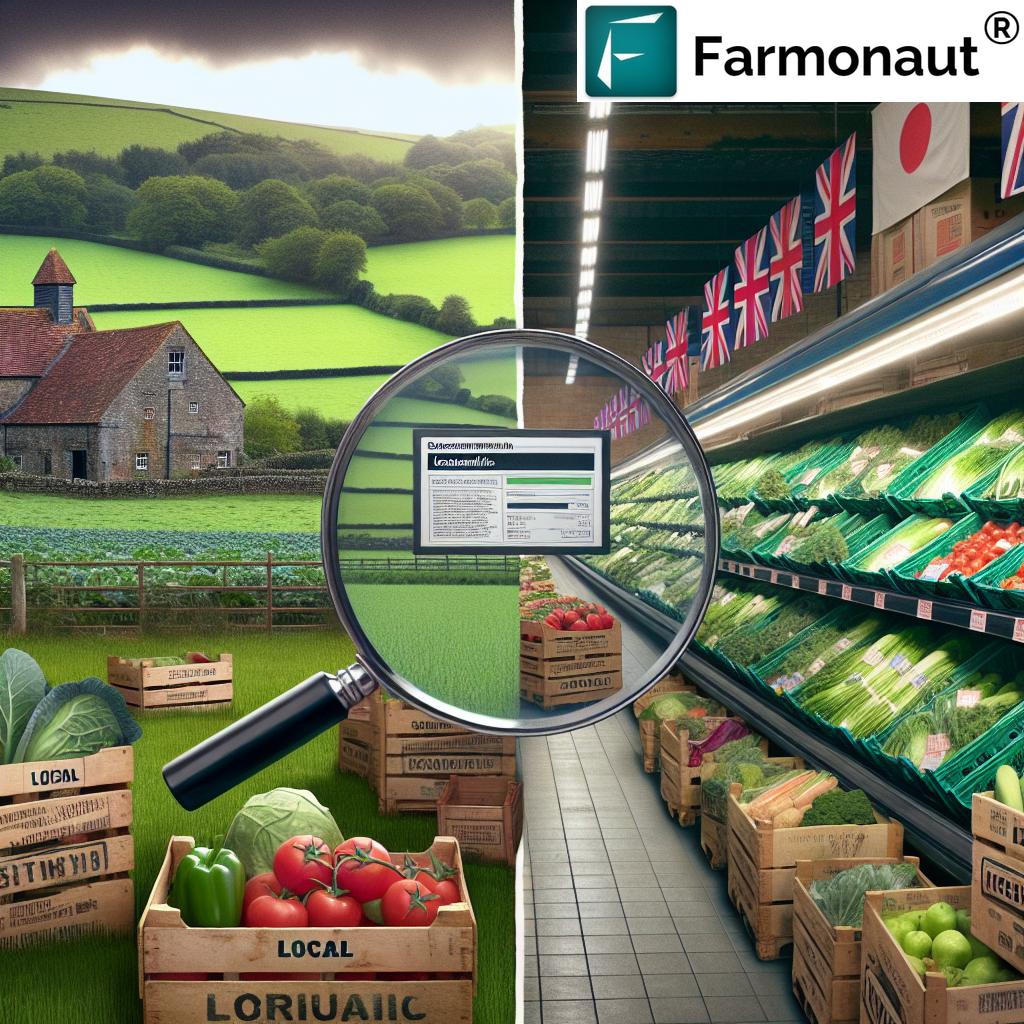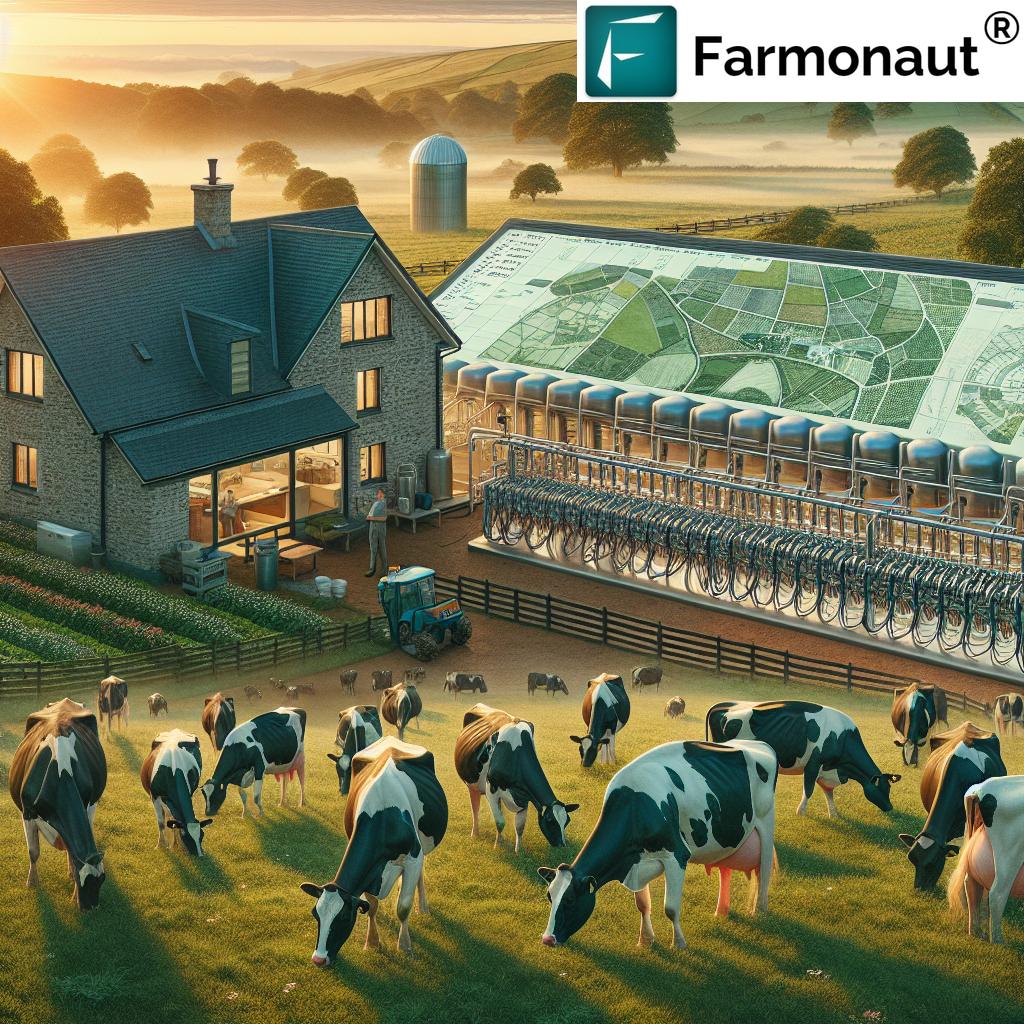Unlocking UK Alpaca Farming Potential: Comprehensive Directory and Resources for Industry Growth
“The UK alpaca farming industry spans from Cornwall to Yorkshire, covering over 500 miles of diverse agricultural landscapes.”
Welcome to our comprehensive guide on the thriving world of alpaca farming in the UK! We’re excited to take you on a journey through this unique and growing agricultural sector, offering insights, resources, and valuable information for both novice and experienced farmers alike. As we explore the vast potential of alpaca farming across the United Kingdom, from the rolling hills of Cornwall to the rugged landscapes of Yorkshire, we’ll delve into the heart of this fascinating industry.
The Rise of Alpaca Farming in the UK
Alpaca farming has experienced significant growth in recent years, transforming from a niche interest to a viable and exciting agricultural endeavor. With their adorable appearance, valuable fiber, and adaptability to the British climate, alpacas have captured the hearts of farmers and enthusiasts across the nation.
Our comprehensive online agricultural directory serves as a hub for connecting alpaca enthusiasts, farmers, and buyers with farms throughout the UK. Whether you’re in Buckinghamshire, Somerset, Essex, or any other county, our platform provides a wealth of information and resources to support your alpaca farming journey.
Exploring the UK Alpaca Farming Landscape
The UK alpaca farming industry is as diverse as the country’s geography. Let’s take a closer look at how this unique agricultural sector has taken root across various regions:
- Cornwall: Known for its mild climate, Cornwall has become a hotspot for alpaca farms, offering ideal conditions for these South American camelids.
- Yorkshire: The expansive moorlands of Yorkshire provide ample grazing space for alpaca herds, contributing to the region’s growing alpaca farming community.
- Gloucestershire: With its rich agricultural heritage, Gloucestershire has embraced alpaca farming, integrating it into its diverse farming landscape.
- Wales: The Welsh countryside, particularly in areas like Ceredigion, Monmouthshire, and Powys, has seen a surge in alpaca farms, capitalizing on the terrain’s suitability for these animals.
Our directory showcases premium farm listings across these regions and many more, helping you discover the vibrant alpaca farming communities throughout the UK.

Alpaca Farm Resources: Everything You Need to Know
Our platform is dedicated to providing comprehensive alpaca farm resources to support both new and established farmers. Here’s what you can expect to find:
- Breeding Information: Learn about alpaca genetics, breeding techniques, and how to improve your herd’s quality.
- Fiber Production: Discover the best practices for harvesting, processing, and marketing alpaca fiber.
- Health and Nutrition: Access valuable information on alpaca care, including diet, vaccinations, and common health issues.
- Farm Management: Explore effective strategies for running a successful alpaca farm, from land management to financial planning.
To enhance your farming experience, we recommend exploring advanced agricultural solutions like those offered by Farmonaut. Their satellite-based farm management tools can provide valuable insights for optimizing your alpaca farm operations.
Connecting with the UK Farming Community
One of the greatest strengths of the UK alpaca farming industry is its tight-knit community. Our platform serves as a conduit for connecting farmers, enthusiasts, and industry professionals. Here’s how you can engage with the UK farming community:
- Forums and Discussion Boards: Participate in lively discussions on alpaca care, breeding, and farm management.
- Events and Workshops: Stay informed about upcoming alpaca shows, shearing demonstrations, and educational seminars.
- Networking Opportunities: Connect with experienced alpaca farmers, veterinarians, and fiber artisans to expand your knowledge and build valuable relationships.
By fostering these connections, we aim to strengthen the alpaca farming community and promote the sharing of knowledge and best practices across the UK.
Agricultural News and Jobs in the Alpaca Industry
Staying informed about the latest developments in the alpaca farming sector is crucial for success. Our platform provides up-to-date agricultural news and jobs specifically tailored to the alpaca industry. Here’s what you can expect:
- Industry News: Get the latest updates on alpaca breeding trends, fiber market conditions, and regulatory changes affecting the industry.
- Job Listings: Browse through a curated list of employment opportunities in alpaca farming, from farm hands to veterinary specialists.
- Market Insights: Access reports on alpaca fiber prices, breeding stock values, and emerging markets for alpaca products.
This wealth of information ensures that you’re always at the forefront of the alpaca farming industry, ready to adapt and thrive in this dynamic sector.
“Alpaca farming in the UK has grown significantly, with an estimated 45,000 alpacas now residing on British farms.”
Farming Technology Integration in Alpaca Husbandry
Farming technology integration is revolutionizing the alpaca industry, enhancing efficiency and productivity. Here are some key technological advancements benefiting alpaca farmers:
- GIS (Geographic Information Systems): Utilize GIS technology for efficient land management and pasture rotation planning.
- Precision Agriculture: Implement data-driven approaches to optimize feed management and health monitoring.
- Automated Shearing Systems: Explore the latest in alpaca shearing technology for improved fiber harvesting.
- Herd Management Software: Leverage digital tools for tracking breeding, health records, and genealogy.
To stay ahead in the industry, consider incorporating advanced agricultural technologies like those provided by Farmonaut. Their satellite-based crop health monitoring and AI-driven advisory systems can be adapted for alpaca farm management, offering valuable insights for pasture health and resource optimization.
Alpaca Industry Development: Trends and Opportunities
The alpaca industry development in the UK continues to evolve, presenting exciting opportunities for farmers and entrepreneurs. Here are some key trends shaping the future of alpaca farming:
- Sustainable Farming Practices: Increasing focus on eco-friendly alpaca farming methods, aligning with consumer demand for sustainable products.
- Diversification of Alpaca Products: Expanding beyond traditional fiber products to include alpaca meat, tourism experiences, and therapy animals.
- Genetic Improvement Programs: Emphasis on selective breeding to enhance fiber quality and animal health.
- Agritourism Opportunities: Growing interest in alpaca farm visits, creating additional revenue streams for farmers.
By staying attuned to these trends, alpaca farmers can position themselves for long-term success in this growing industry.
Online Agricultural Resources for Alpaca Farmers
In today’s digital age, online agricultural resources play a crucial role in supporting alpaca farmers. Our platform offers a wealth of digital tools and information to help you succeed:
- Educational Webinars: Access expert-led online sessions covering various aspects of alpaca farming.
- E-books and Guides: Download comprehensive resources on alpaca care, fiber processing, and farm management.
- Virtual Farm Tours: Explore successful alpaca farms across the UK through interactive virtual tours.
- Online Marketplaces: Connect with buyers and sellers of alpacas, equipment, and alpaca products.
To enhance your farm management capabilities, consider exploring Farmonaut’s innovative agricultural solutions. Their satellite-based monitoring and AI-driven insights can be valuable for optimizing your alpaca farm operations.
UK Alpaca Farming Industry Overview
| Region | Estimated Number of Alpaca Farms | Average Herd Size | Primary Products | Popular Alpaca Breeds | Key Industry Challenges | Technological Adoption Rate |
|---|---|---|---|---|---|---|
| Cornwall | 75 | 30 | Fiber, Agritourism | Huacaya, Suri | Seasonal tourism fluctuations | Moderate |
| Yorkshire | 100 | 40 | Fiber, Breeding Stock | Huacaya | Harsh winters | High |
| Gloucestershire | 60 | 25 | Fiber, Farm Visits | Huacaya, Suri | Market competition | Moderate to High |
| Wales (Ceredigion, Monmouthshire, Powys) | 90 | 35 | Fiber, Meat, Tourism | Huacaya | Regulatory compliance | Moderate |
| Buckinghamshire | 40 | 20 | Fiber, Therapy Animals | Huacaya, Suri | Land availability | High |
Alpaca Farming: Challenges and Solutions
While alpaca farming offers numerous opportunities, it also comes with its set of challenges. Here are some common issues faced by UK alpaca farmers and potential solutions:
- Weather Variability: Implement proper shelter and pasture management techniques to protect alpacas from extreme weather conditions.
- Pest and Disease Management: Develop a comprehensive health care plan, including regular veterinary check-ups and preventive measures.
- Market Fluctuations: Diversify income streams by offering various alpaca products and services, such as farm tours or alpaca trekking.
- Feed Costs: Explore sustainable grazing practices and consider growing your own feed to reduce expenses.
By addressing these challenges head-on, alpaca farmers can build resilient and successful operations.

Sustainable Practices in Alpaca Farming
Sustainability is becoming increasingly important in agriculture, and alpaca farming is no exception. Here are some eco-friendly practices that UK alpaca farmers are adopting:
- Rotational Grazing: Implement a grazing system that allows pastures to regenerate, improving soil health and reducing erosion.
- Natural Fiber Processing: Use environmentally friendly methods for cleaning and processing alpaca fiber.
- Water Conservation: Install rainwater collection systems and efficient irrigation methods to minimize water usage.
- Organic Fertilizers: Utilize alpaca manure as a natural fertilizer for pastures and gardens.
These sustainable practices not only benefit the environment but can also lead to cost savings and improved product quality.
The Role of GIS in Alpaca Farm Management
Geographic Information Systems (GIS) are revolutionizing alpaca farm management. Here’s how GIS applications are benefiting the industry:
- Pasture Management: Use GIS to map and analyze pasture conditions, optimizing grazing rotations.
- Herd Tracking: Implement GPS tracking to monitor alpaca movements and behavior patterns.
- Land Use Planning: Utilize GIS for efficient farm layout and expansion planning.
- Disease Monitoring: Map and analyze health data to identify and prevent disease outbreaks.
Incorporating GIS technology can significantly enhance the efficiency and productivity of alpaca farms. Consider exploring Farmonaut’s GIS-based solutions to optimize your farm management practices.
Explore Farmonaut’s API for advanced agricultural data
Alpaca Farm Attractions and Agritourism
Alpaca farms are increasingly becoming popular tourist attractions, offering unique experiences for visitors. Here’s how UK alpaca farmers are tapping into the agritourism market:
- Farm Tours: Offer guided tours showcasing alpaca herds and farming practices.
- Alpaca Walks: Provide visitors with the opportunity to walk alpacas through scenic countryside routes.
- Fiber Workshops: Host hands-on sessions teaching visitors about alpaca fiber and its uses.
- Farm Stays: Develop on-site accommodation for an immersive alpaca farm experience.
By diversifying into agritourism, alpaca farmers can create additional revenue streams while educating the public about these fascinating animals.
Alpaca Products: Beyond Fiber
While alpaca fiber is the primary product, there are numerous other ways to capitalize on alpaca farming. Here are some alternative products and services:
- Alpaca Meat: A lean, nutritious alternative gaining popularity in gourmet circles.
- Alpaca Manure: Highly sought after as an organic fertilizer for gardens and crops.
- Therapy Animals: Trained alpacas for animal-assisted therapy programs.
- Photography Sessions: Offer professional photo shoots with alpacas for special events.
Diversifying your alpaca farm’s offerings can help create a more resilient and profitable business model.
Irrigation and Water Management for Alpaca Farms
Proper irrigation and water management are crucial for maintaining healthy pastures and ensuring the well-being of alpacas. Here are some key considerations:
- Efficient Irrigation Systems: Implement drip or sprinkler systems to conserve water while maintaining pasture quality.
- Water Quality Monitoring: Regularly test and treat water sources to ensure they meet alpacas’ needs.
- Rainwater Harvesting: Install collection systems to capture and store rainwater for farm use.
- Drought-Resistant Pastures: Plant drought-tolerant grass species to reduce water requirements.
Effective water management not only supports alpaca health but also contributes to the overall sustainability of your farm.
Access Farmonaut’s API Developer Docs for advanced agricultural insights
Financial Considerations for Alpaca Farmers
Understanding the financial aspects of alpaca farming is crucial for long-term success. Here are some key financial considerations:
- Initial Investment: Budget for land acquisition, fencing, shelter construction, and initial herd purchase.
- Operational Costs: Account for feed, veterinary care, shearing, and ongoing maintenance expenses.
- Revenue Streams: Develop multiple income sources, including fiber sales, breeding fees, and agritourism activities.
- Insurance: Invest in appropriate insurance coverage to protect your alpaca herd and farm assets.
Careful financial planning and management are essential for building a profitable and sustainable alpaca farming business.
Legal and Regulatory Aspects of Alpaca Farming
Navigating the legal and regulatory landscape is an important aspect of alpaca farming in the UK. Here are some key areas to consider:
- Animal Welfare Regulations: Ensure compliance with UK animal welfare laws and best practices for alpaca care.
- Land Use and Zoning: Understand local regulations regarding agricultural land use and farm operations.
- Fiber Processing Standards: Adhere to quality standards and regulations for processing and selling alpaca fiber products.
- Business Licensing: Obtain necessary licenses and permits for operating an alpaca farm and related businesses.
Staying informed about legal requirements and industry standards is crucial for operating a compliant and reputable alpaca farm.
Alpaca Farming Courses and Education
Continuous learning is key to success in alpaca farming. Here are some educational opportunities available to UK alpaca farmers:
- Alpaca Husbandry Courses: Attend specialized training programs covering all aspects of alpaca care and management.
- Fiber Processing Workshops: Learn techniques for harvesting, grading, and processing alpaca fiber.
- Farm Management Seminars: Participate in business-focused workshops to enhance your farm management skills.
- Online Certifications: Pursue online courses and certifications in specialized areas of alpaca farming.
Investing in education and skill development can significantly improve your alpaca farming practices and business acumen.
The Future of Alpaca Farming in the UK
As we look to the future, the alpaca farming industry in the UK shows promising growth potential. Here are some trends and predictions:
- Increased Demand for Sustainable Fibers: Growing consumer interest in eco-friendly textiles bodes well for alpaca fiber products.
- Technological Advancements: Continued integration of smart farming technologies, including those offered by companies like Farmonaut, will enhance farm efficiency and productivity.
- Diversification of Alpaca Products: Expansion into new markets, such as alpaca-based cosmetics or nutraceuticals.
- Collaborative Farming Models: Increase in cooperative ventures and shared resources among alpaca farmers.
By staying adaptable and embracing innovation, UK alpaca farmers can position themselves for success in this evolving industry.
Frequently Asked Questions (FAQ)
- Q: How much land is needed to start an alpaca farm?
A: Generally, you need about 1-2 acres for every 5-10 alpacas, depending on pasture quality and management practices. - Q: What is the average lifespan of an alpaca?
A: Alpacas typically live between 15-20 years, with some reaching up to 25 years with proper care. - Q: How often are alpacas sheared?
A: Alpacas are usually sheared once a year, typically in the spring before the warm summer months. - Q: Can alpacas be kept with other livestock?
A: While alpacas can coexist with some livestock, it’s generally recommended to keep them separate, especially from larger animals like cattle or horses. - Q: What are the main health concerns for alpacas in the UK?
A: Common health issues include parasites, vitamin D deficiency, and dental problems. Regular veterinary check-ups are essential.
Conclusion
The UK alpaca farming industry is a dynamic and growing sector with immense potential. From the picturesque farms of Cornwall to the rugged landscapes of Yorkshire, alpaca farming has found a home across the British Isles. Our comprehensive online agricultural directory serves as your gateway to this exciting world, offering valuable resources, connections, and insights to support your alpaca farming journey.
Whether you’re a seasoned farmer looking to expand your operations or a newcomer intrigued by the prospect of alpaca husbandry, the opportunities are vast. By embracing sustainable practices, leveraging technology, and staying connected with the vibrant UK farming community, you can contribute to the continued growth and success of this unique industry.
Remember, success in alpaca farming comes from a blend of passion, knowledge, and adaptability. Stay informed, engage with fellow farmers, and don’t hesitate to explore innovative solutions like those offered by Farmonaut to optimize your farm management practices.
We invite you to explore our directory, engage with the resources provided, and become part of the thriving UK alpaca farming community. Together, we can unlock the full potential of alpaca farming and shape a sustainable, prosperous future for this remarkable industry.
















